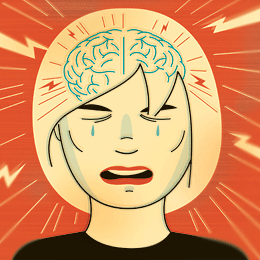
Three times as many women as men suffer from migraine headaches, a painful constriction and dilation of blood vessels in the brain often associated with the menstrual cycle, and UCLA researchers think they now know why. A recent study — admittedly one conducted only on mice — showed that females have a lower tolerance to cortical-spreading depression (CSD), an electrophysiological wave that can propagate through the cortex of the brain. In men, this is less likely to lead to nausea, visual auras and pain, symptoms that women more commonly experience and that are the hallmarks of a migraine. The good news: in trials, drugs that block CSD waves are showing early success.